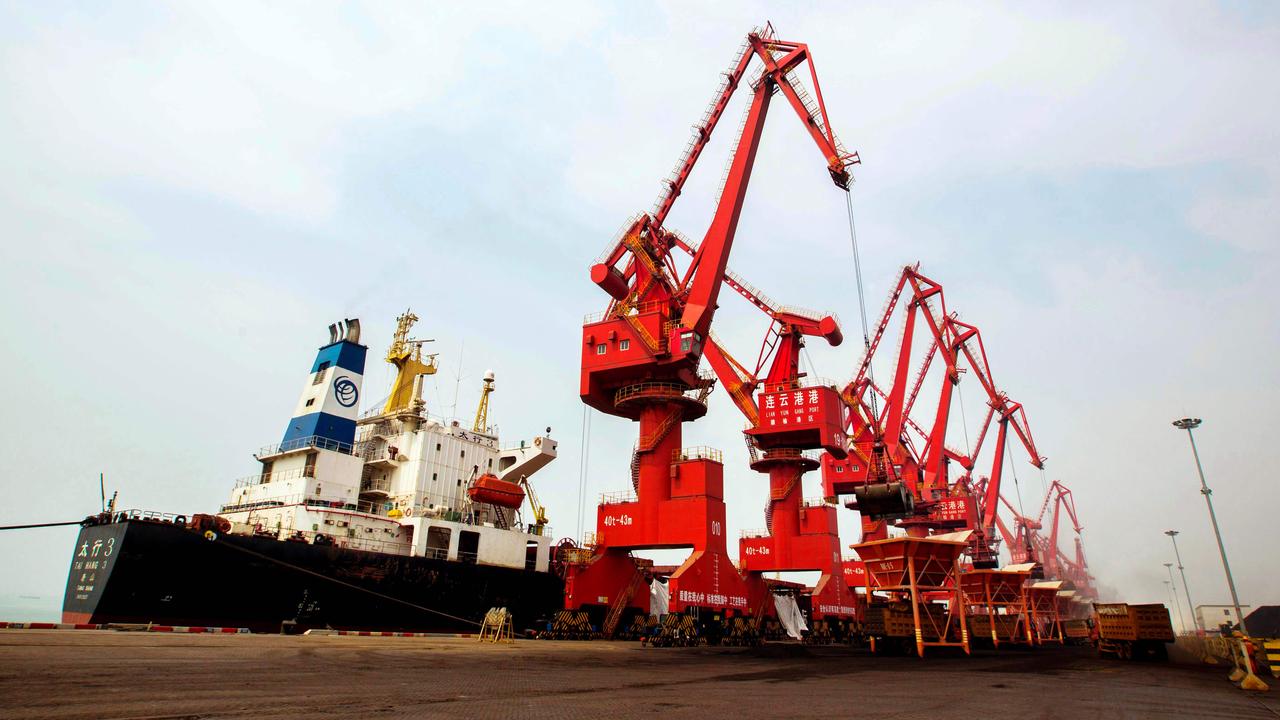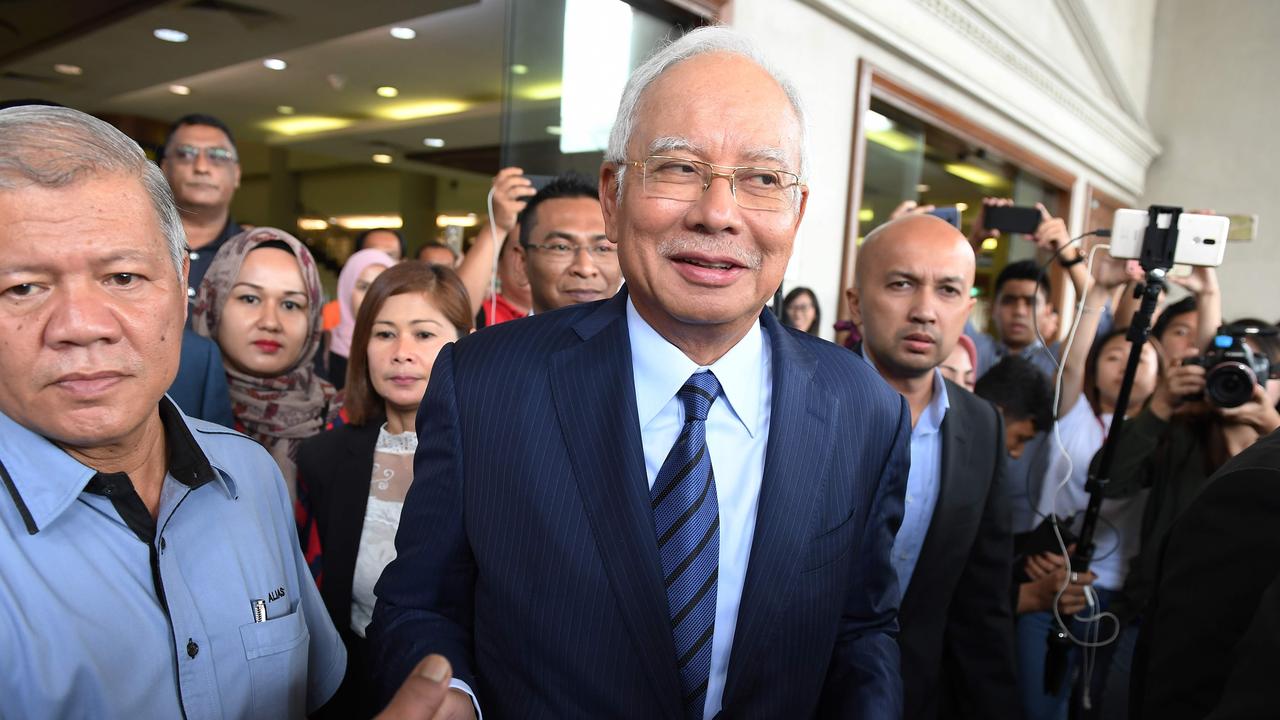Kim Jong-un’s ghost city in China
North Korea’s dictator ordered the execution of an uncle, whose economic vision died with him.

Some of China’s ghost towns are starting to come to life, like skeletons in a Pirates of the Caribbean movie, as regional economies pick up thanks to vast government spending.
But one of the largest and most spectacular appears doomed to remain deserted until the downfall of North Korean dictator Kim Jong-un, if and when that happens. The relationship between North Korea and the rest of the world, especially the US, still runs through China even more than it does through South Korea, with considerable economic and business ramifications.
This week, the border city of Dandong has seen queues of hundreds of North Koreans, including restaurant and factory workers, mostly young women, waiting to return as their workplaces have closed for China’s National Week holiday. No one, including the workers themselves, knows whether they will be coming back. But the likelihood is they will not.
China has naturally sought in past years to help integrate North Korea into global trade structures, in order to aid the recovery of its own beleaguered rust-belt northeast. For instance, a link was being developed during the latter days of Kim Jong-il, the father of Kim Jong-un, between China’s city of Hunchun and the North Korean port city of Rason, which would have given northeast China access to the Sea of Japan just a dozen kilometres away.
But the new Kim’s accession was followed swiftly by the shock arrest of his uncle Jang Song-thaek in December 2013, resulting not only in Jang’s death but also that of China-style reform and development in North Korea.
During his five years in power, China’s leader Xi Jinping has not met or spoken with Kim Jong-un, although he has had many encounters with South Korea’s leaders. Kim has appeared to target big events for Xi, for instance distractingly launching a missile as Xi was about to open his grand forum launching his Belt and Road Initiative in May. Analyst Yanmei Xie, at Gavekal Drangonomics, says “the Chinese companies that still deal with North Korea are mostly small, private-sector businesses of no political significance. State-owned enterprises are generally advised to steer clear of North Korea as too risky.”
Beijing, for instance, rejected Pyongyang’s application to join its Asian Infrastructure Investment Bank, citing lack of credible data. China’s support of extending UN sanctions is viewed by North Korea as the ultimate betrayal. And yet, Xie says, “the US does not see China as an obliging partner in dealing with North Korea” — chiefly because it won’t cut off completely the Friendship Pipeline of crude oil, which Beijing fears would push North Korea over the edge into the chaos of regime collapse, which it dreads.
The fate of Dandong New City points to the costs already borne by China, of Kim’s single-minded focus on nuclear development. His uncle Jang had sought to develop a massive free trade economic zone straddling the nations, one of the many ways in which he had attempted to pull his country up towards the living standards of its large neighbour.
A mighty 3km, four-lane suspension bridge was built for $440 million to link the two countries within the zone. But it has never been used. The North Korean side falls away straight into rice fields.
Dandong is flanked by the Yalu River, which forms the border between the countries. In 2010, it borrowed about $1.2 billion — readily available through the central government’s stimulus program — to start planning and building Dandong New City to boost mutual manufacturing, services, trade and investment with North Korea. This was a response, in part, to the urging of Jang, whose personal guarantee of Pyongyang’s strong support appeared convincing.
China’s Premier Li Keqiang, who was then communist party secretary of Liaoning province, which contains Dandong, fully supported the huge project.
The plan was to energise at the same time the North Korean economy, hungry for capital, management, technology and new products and services — and with it, the floundering economy of China’s rust belt northeast as the obvious source of such needs.
This inevitably involved Dandong, through which 75 per cent of all trade between North Korea and China flows. The project was formally launched at a five-star Beijing hotel in 2012, with seed money provided by the government for building the core structures, including a customs building with a curved roof in the Korean style, culture and sports centres, parks and gardens and an imposing city hall. Investors were also lured in to develop high-rise office and apartment towers, factory and warehouse buildings, shopping and restaurant malls.
A 30-storey building looking straight down and across the bridge towards North Korea, featuring a gap in its centre to increase its feng shui, as well as representing the Chinese character for a door, was titled Gate of the Nation. Among the developers who responded to Dandong’s appeal to help build its new city was a Singaporean who had made substantial profits from apartments in nearby Shenyang City, and named his zone “Singapore City”.
Another multi-tower apartment complex is appropriately titled Neverland.
In all, new homes were built for 400,000 families. But almost none have been sold, and the only activity visible on a working day is restaurants serving primarily the security guards and janitors looking after the empty buildings.
The overall investment in new Dandong reached $5bn. When it was nearing completion, flats were on sale for about $1400 a square metre. Today it is $400, but there appear to be few, if any, takers. In Beijing, middle-class flats routinely sell for $12,000 a square metre.
If Jang Song-thaek had been able to maintain North Korea’s dogged economic engagement — and inevitably, over time, greater social engagement — with China, Dandong New City would have emerged as the capital and symbol of this process. Instead, he was mercilessly disposed of by his nephew, under whom his country’s state media hastened to sneer at him, as he was being executed, as “the despicable human scum Jang, who was worse than a dog”.
When The Australian drove along the border between the emptiness of the new Dandong that carried so many high hopes and North Korea, the only signs of life to be observed on the other side of the brand new double fence with razor wire erected by the Chinese security authorities were a few farmers working a rice field together, singing plaintively, as a foot patrol of young guards with ancient-looking rifles walked past.
Their Chinese equivalents patrol the border in brand new SUVs, and signs read: “Do not converse or exchange objects with people on the other side of the border”. It’s a message that carries a redolent meaning for what is now Dandong New Ghost City.




To join the conversation, please log in. Don't have an account? Register
Join the conversation, you are commenting as Logout